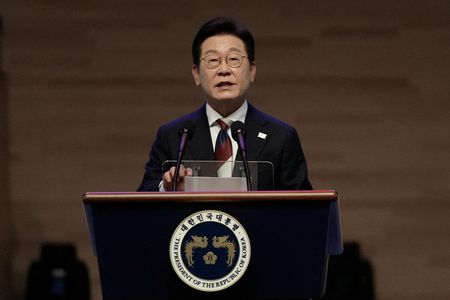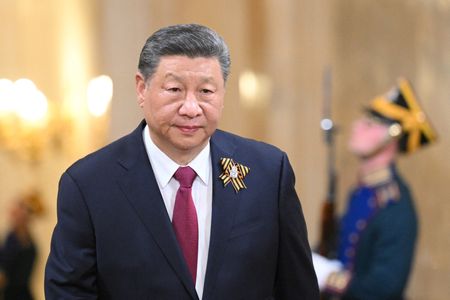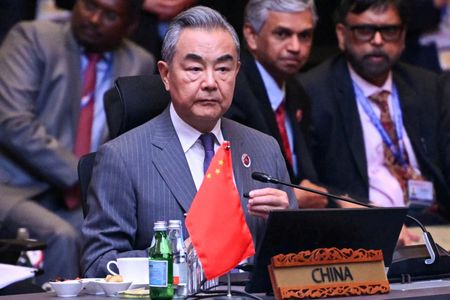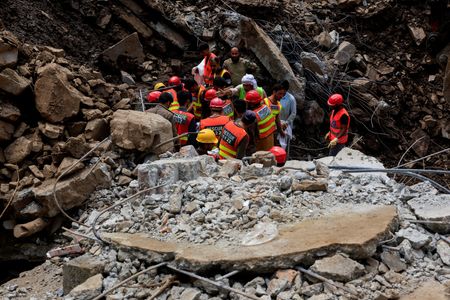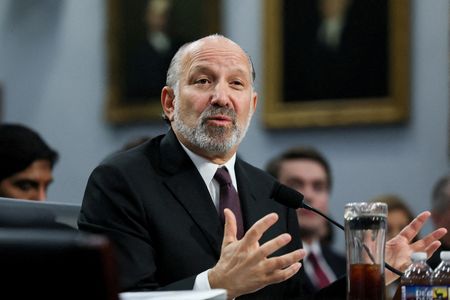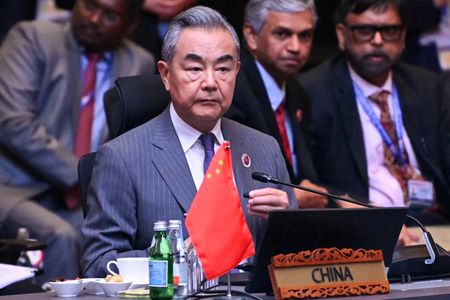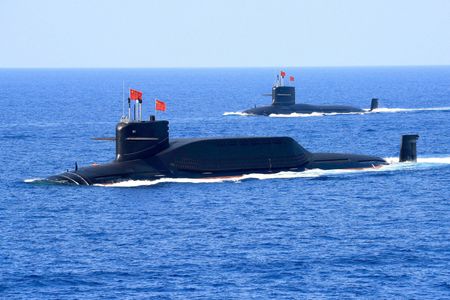By Joyce Lee and David Brunnstrom
SEOUL/WASHINGTON (Reuters) -North Korea is stepping up criticism of South Korea’s new President Lee Jae Myung as he prepares for his first summit with U.S President Donald Trump, calling Lee’s efforts to engage with Pyongyang a “pipedream”.
Since taking office in a snap election in June, the liberal Lee has taken steps to lower tensions with the nuclear-armed North, and the issue is one where he is expected to find common ground with Trump, who still boasts of his historic summits with North Korean leader Kim Jong Un.
But North Korea’s envoys have yet to accept any of Trump’s latest letters, and Kim’s powerful sister, Kim Yo Jong, has issued a steady stream of dismissive statements rejecting and ridiculing Lee’s overtures.
“Lee Jae Myung is not the sort of man who will change the course of history,” she told a gathering of North Korean diplomats, state news agency KCNA reported on Wednesday.
She called South Korea a “faithful dog” of Washington, accused Lee of speaking gibberish, and said his government maintains a “stinky confrontational nature…swathed in a wrapper of peace”.
Kim said the Lee administration is pursuing a two-faced policy of engagement as well as threatening joint military drills with the United States, which bases around 28,500 troops in South Korea as a legacy of the 1950-1953 Korean War.
Leader Kim Jong Un has ordered his diplomats to take “preemptive counteraction” against enemy states, the KCNA report said, without providing details.
In response to her statement, South Korea’s presidential office said the administration would open a new era for joint growth with North Korea, and its recent measures were meant for the stability and prosperity of both Koreas.
South Korea and its ally the United States kicked off joint military drills this week, including testing an upgraded response to heightened North Korean nuclear threats.
Earlier this week, Kim Jong Un said that the joint U.S.- South Korea drills were an “obvious expression of their will to provoke war” and that his country needed to rapidly expand its nuclear armament.
North Korea has surged ahead with more and bigger ballistic missiles, expanded its nuclear weapons facilities, and gained new support from its neighbours.
“The North Korean leader sees little need to engage with Washington since he is receiving far more substantial benefits from Russia with fewer conditions than he could attain from the United States,” said Bruce Klingner, a former U.S. intelligence analyst now with the Mansfield Foundation.
Still, Kim could eventually respond to Trump in the hopes of providing the American president the “illusion of success though it would do nothing to actually reduce the North Korean threat to the U.S. and its allies,” he said.
North Korea in recent years has also changed its policy toward the South, dismissing the idea of peaceful unification and called Seoul a main enemy.
Lee this week ordered his cabinet to prepare a partial step-by-step implementation of existing agreements with North Korea, and South Korea has begun removing loudspeakers that had been blaring anti-North Korea broadcasts along the border.
“There’s nothing new here and it’s not going to get them anywhere,” said Jenny Town, managing director Washington-based North Korea project 38 North.
If anything of substance is discussed at the summit it will likely be the joint drills, which Trump scaled back during his first term, Town said.
(Reporting by Joyce Lee in Seoul and David Brunnstrom in Washington; additional reporting by Ju-min Park; Writing by Josh Smith; Editing by Stephen Coates and Michael Perry)

